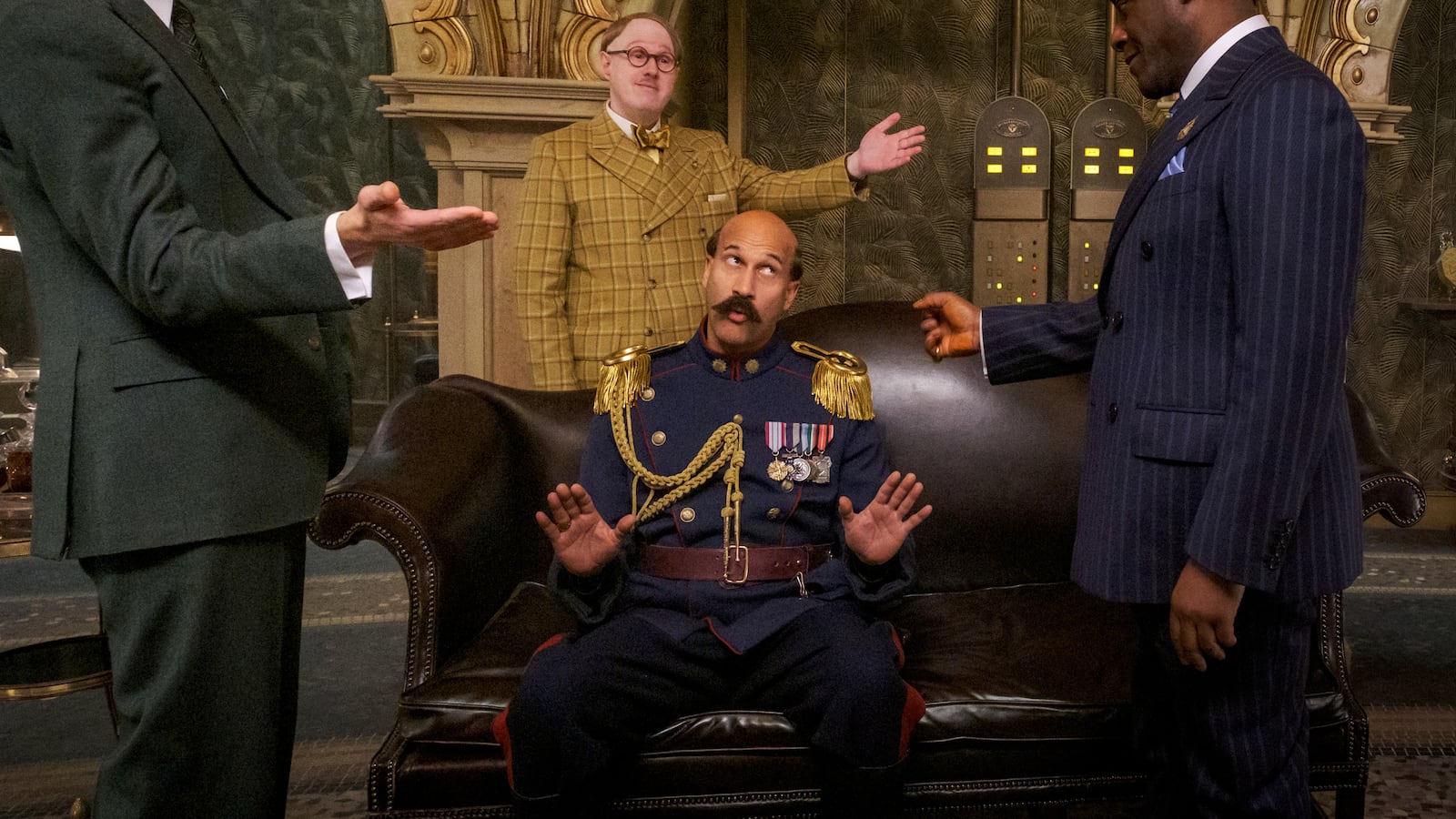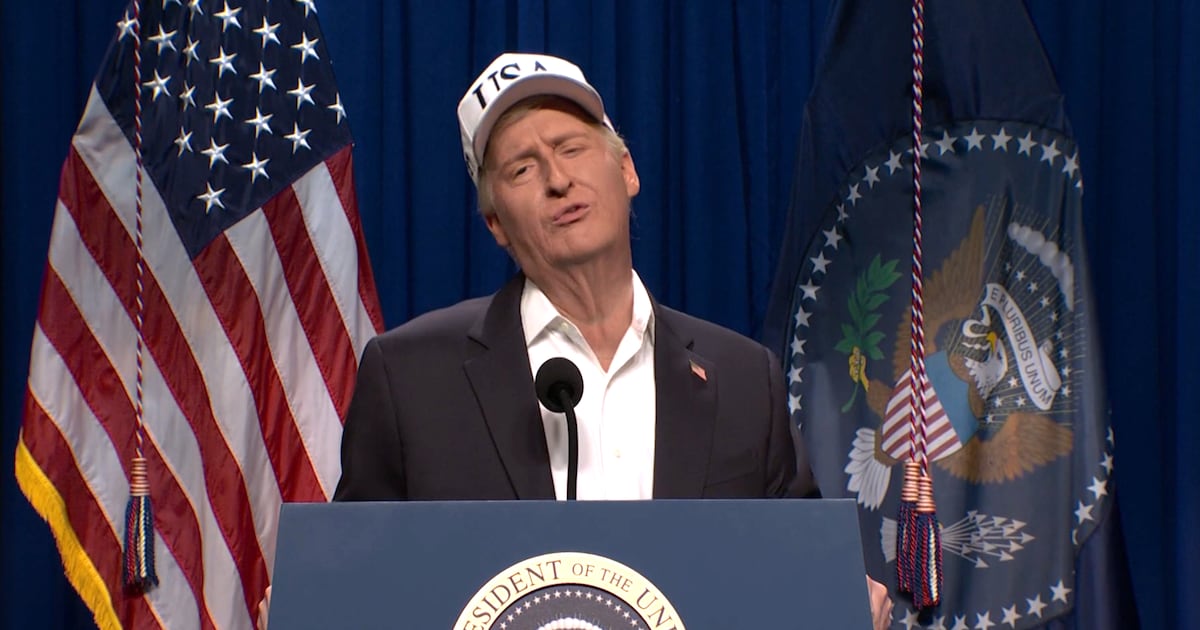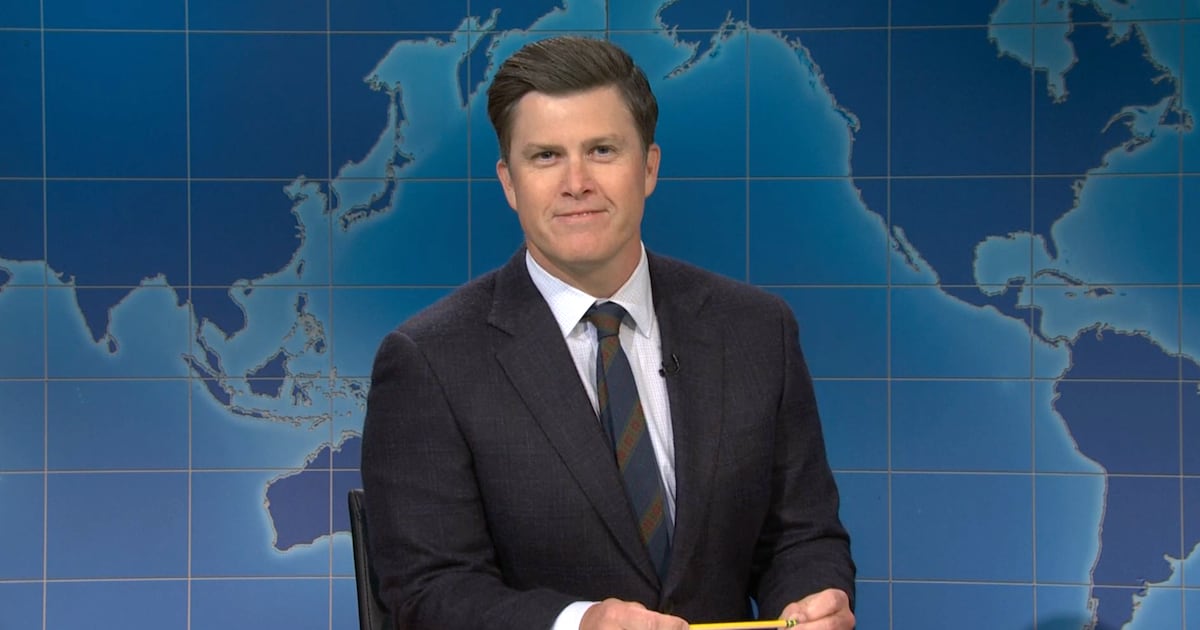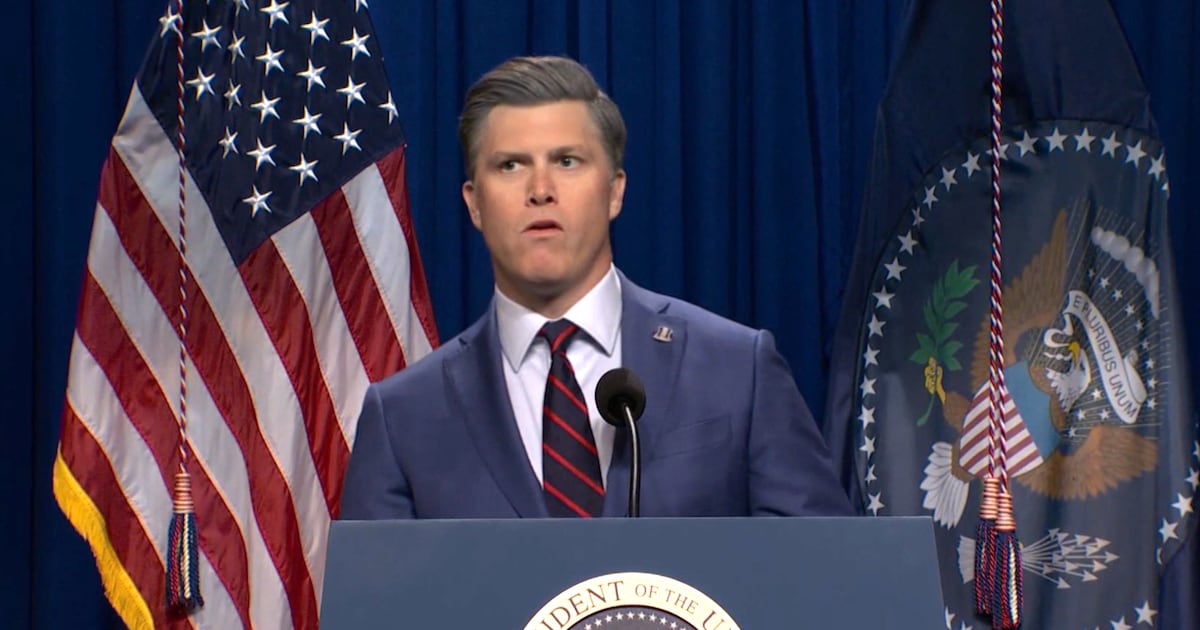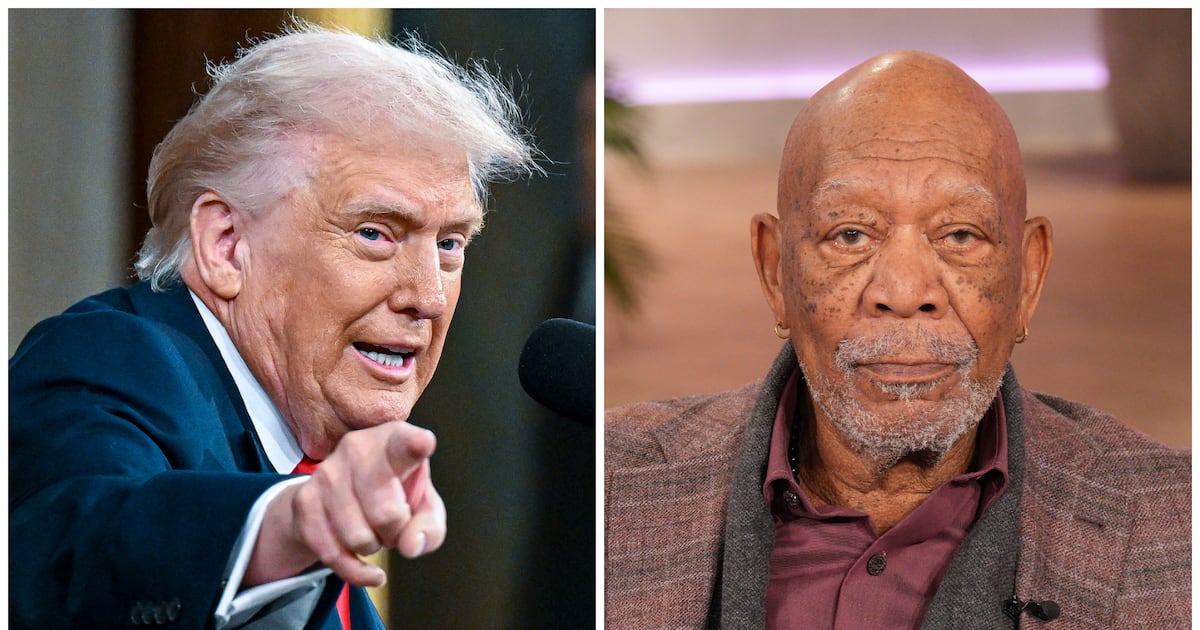Following the endless British whimsy of the Paddington films, Paul King has turned his sights to the world of Willy Wonka. A prequel inspired by Roald Dahl’s novel, Wonka functions as an origin story for the legendary chocolatier (played here by Timothée Chalamet), long before golden tickets entered the picture. But this isn’t your parents’ Willy Wonka—this version does away with practically all the edge found in both its source material or previous adaptations.
The Willy Wonka most of us grew up with was charismatic and charming, yet unafraid to show a more malicious side. Gene Wilder’s Wonka, star of the 1971 film, seemed to take a particular delight every time one of the children visiting his factory suffered an unfortunate fate. But Chalamet's Wonka is as sweet as the confections he creates, without the bitter aftertaste. The same goes for most of Wonka, the film, with one exception: its cheap, worthless, unimaginative fat jokes.
Wonka’s fat jokes all focus on a single target—the film’s villain, the chief of police (Keegan-Michael Key), who does everything he can to stop Wonka from building his chocolate business. A criminal cartel of competing chocolate businesses bribes the chief with a practically infinite supply of their own cocoa-y goodness, in exchange for his help in stopping Wonka from building a business of his own. Yes, all it takes for a law enforcement offer to break the law he’s meant to enforce is some chocolate.
While the film is full of people who adore chocolate and eat masses of it, the police chief cannot live without it. It’s his entire motivation, to the point where there is little else to say about his character. And the more the police chief eats chocolate, the bigger he gets. In real life, Key is not overweight by any stretch, so King and co-writer Simon Farnaby decided that the only way to make the results of his chocolate addiction clear was by putting him in a fat suit—and then even bigger ones as the film carries on. The first time we see a notably larger chief stand to his feet, his body emits an incredibly loud and extended creaking noise, as if the whole Earth is struggling under his immense weight. It’s groan-worthy and embarrassing. For a film that’s so keen to win you over with heartwarming charm, constantly punching down at a fat character is a humiliating choice that undermines its tone. Instead of creating a nuanced, well-defined villain, all Wonka does is reinforce the idea that fat people are something to laugh at.
As one of the film’s most prominent characters, Wonka seizes upon as many opportunities as possible to poke fun at the chief’s size. Around the halfway point, he’s gone through the entirety of his chocolate bribes, so he’s been reduced to eating the wrappers the chocolate comes in—because they may have traces of the confection still on them. Due to his large size and absurd desperation for sweets, the chief sweats profusely and moves in an exaggerated fashion. Funny, right?
In one of the film’s most cringeworthy moments, an especially enormous chief struggles to get out of his police car—because of course he does. But before those over-the-top sound effects can play to signal just how cartoonishly fat he is, a practically infinite number of wrappers cascade out of the vehicle right when the car door opens. A fat person couldn’t possibly not binge-eat on the job! In a different, pivotal moment, his belt buckle comes flying off, because of course it does. It’s like King went through a checklist of dull tropes about fat people—an obsession with food, laziness, and a complete lack of willpower —and was determined to tick every box.

Keegan-Michael Key in Wonka.
Warner Bros. PicturesThe problem with Wonka isn’t that there are fat jokes—those can be funny without punching down needlessly. Three of television's most delightful sitcom characters—Peter Griffin, Homer Simpson, and Eric Cartman—are fat, and other characters on their respective shows constantly poke fun at them for it. But the big difference with these shows is that we either care about the characters they’re about or they match the tone of the show. The fat jokes are character-building moments, and it’s clear that the writers love these characters—especially because they’re never the only ones on the receiving end of mockery.
Wonka’s fat jokes, however, lack that same thought and care. There’s no nuance, no subtlety, and no creativity to them—nothing about them adds anything to our understanding of the police chief, nor do they set up other, funnier gags. They could have worked if there was any semblance of a character beyond a love of chocolate, but the police chief is as one-note as they come. They’re just an opportunity to belittle weight, with no purpose or intent other than cruelty. There are films where such attempts at “humor” can succeed, like Pitch Perfect or Bridesmaids, but they need a much sharper, nastier edge than Wonka.
Instead, the jokes make the entire film feel inauthentic. Even just a few of these jabs would still derail the joy Wonka is so determined to bring into every frame. But once the jokes start, they don’t stop, constantly overriding the story with mean-spirited humor that adds absolutely nothing to the story. This is supposed to be a film with nothing but good vibes, and these fat jokes feel like they were leftovers from the 1971 film, in which young, bloated Augustus Gloop’s chocolate obsession nearly leads to his demise. But that film took pride in being cruel, and that story made sense in that universe. Here, it makes no sense.
With Wonka, King is trying to recapture the charm of the Paddington series. But any sweetness the film conjures is overpowered by mood-killing, room-clearing fat jokes. Thanks to a misjudged bludgeoning of fat jokes, Wonka just ends up feeling Baddington.

